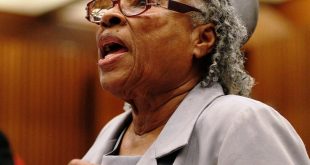By Annie Rigby
During the Monday, June 8, Special City Council Meeting Brandon Harrelson, Director of the Water and Sewer Department addressed the council of the negative issues regarding the water and sewer billing code errors.
With 2020-21 preliminary budget in hand when compared to the 2019-20 approved budget, a line item jumped off the page. The line item for Water/Sewer Operate Revenue for the coming year is a total amount of $3,218,364. In the 2019-20 the line item totaled $1,794,237. This is a $1.2 million difference in revenue. Why is that and where the money will come from to generate the difference.
Dennis Drozdak, interim city administrator, was concerned at the low amount reported for the city water and sewer revenue, he asked Harrelson to check into the accuracy of the revenue amounts. In March of this year Harrelson audited the systems billing entries where the discrepancies were revealed to be errors in the proper coding that caused a lowered rate for a mixture of residents and businesses in Loris.
Harrelson said “In the audit it was discovered that the last year billing rates did not match the use of the water and sewer creating underpayments by city water customers has been corrected in the billing system to prevent another occurrence of this nature.” Harrelson and his team have made the corrections in the coding and will reflect on the water/sewer bills.
During the state-wide shutdown due to the COVID-19 pandemic to protect employees and keep social distancing, those who had an underlying condition or family members with underlying conditions were on a paid leave of absence. Once the governor’s shutdown was lifted one employee chose to explore other options and did not return to the City of Loris.
Cross training had not been completed in the water and sewer billing in the Nicholson software; therefore the coding errors were not discovered before the 2019-20 budget was finalized; the new budget for 2020-21 reflects the change in revenue by $1.2 million.
Harrelson said, “The city’s financials are handled and maintained by the treasurer and administrator.” He continued, “I was not given the privileges to be able to review utility billing in the Nicholson software until March of 2020.”
Drozdak who has a master’s in accounting said the procedures are to look at the cost of the revenue per thousand gallons and what is the cost for 1,000 gallons of water usage. He stated that Grand Strand treats the water and there is no additional cost for the city.
Drozdak said, “I simply noticed that the revenue per 1,000 gallons was unusual, so I asked Brandon to investigate why the revenue is going down per 1,000 gallons.”
Drozdak promotes the cross training of employees for many reasons, one obvious scenario would be if an employee required a medical leave of absence; we will have personnel in place able to pick up the duties.
He said, “We have four employees who take the water bill payments, if one employee leaves we are at a 25 percent of our staff and lose functions if not cross trained.” He continued, “It is imperative to cross train all the employees because in our business the work cannot wait.” There is a backup for any employee who may be out of the office on vacation.
The coding for the city water and sewer has been updated, corrections made, and both Harrelson and Drozdak feel confident the understanding of the lesser amount received in 2019-2020 will reflect the correct amount of revenue in the 2020-21 budget.
The next Special City Council Meeting will be held on Monday, June 15, an agenda will be published on the city website. The budget for the year 2019-20 ends June 30. A Public Hearing must be published 15 days before city council’s approval of the finalized budget to be implemented for the fiscal year.
 North Myrtle Beach Times Serving our Community and the Grand Strand for over 50 years
North Myrtle Beach Times Serving our Community and the Grand Strand for over 50 years



